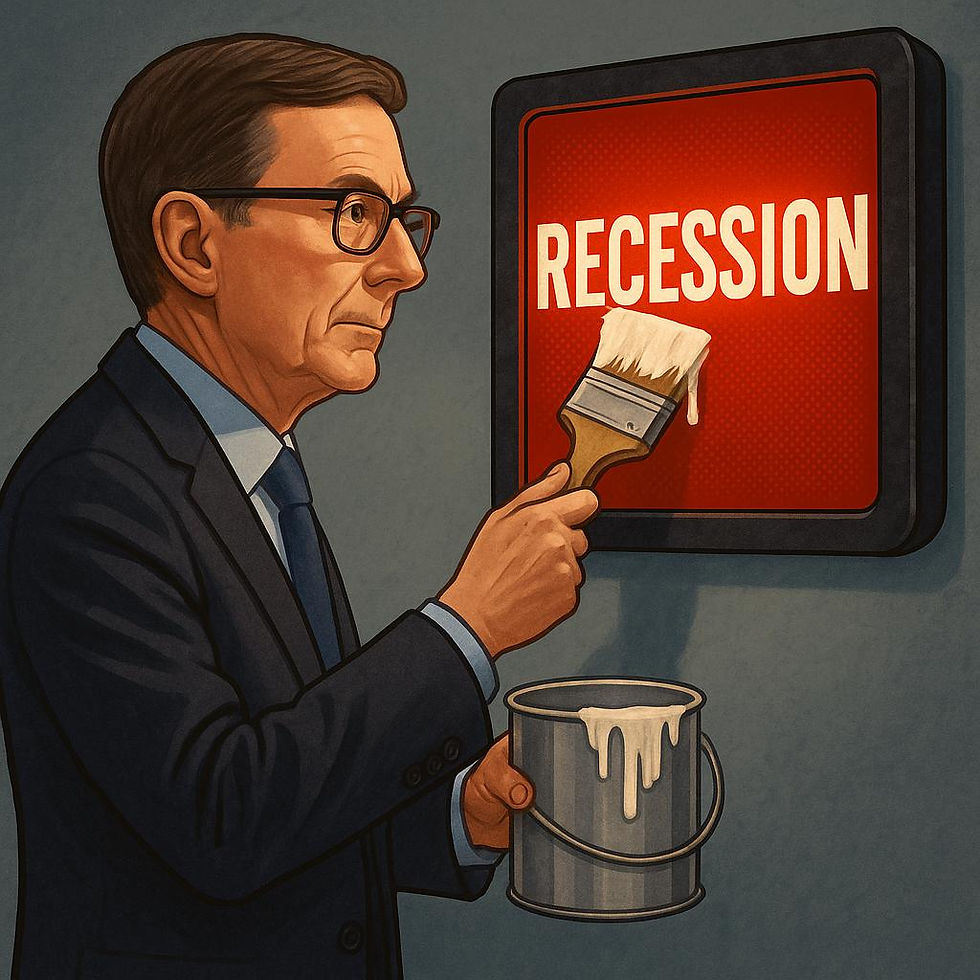Bank of Canada Holds Rates – But Here’s What You Really Need to Know
- Simon Bilodeau

- Apr 16
- 3 min read
The Bank of Canada held its overnight rate at 2.75% today (April 16), keeping the mortgage prime rate at 4.95%. After seven consecutive cuts, this pause was expected. The BoC acknowledged growing uncertainty around inflation and the economy, citing factors like U.S. tariff policy under Trump and potential changes from a new federal government. Their updated Monetary Policy Report outlines two inflation scenarios—short-term, limited tariffs vs. broad, prolonged ones—each with very different economic impacts. For now, the BoC is taking a wait-and-see approach, staying focused on its core mandate: keeping inflation near 2%. The next meeting is set for June 4.

Inflation Keeps moving downward
March inflation dropped to 2.3% from 2.6% in February, driven by lower gas and travel costs—a positive sign. The BoC estimates that removing the consumer carbon tax could reduce inflation by up to 0.7% for the next year.
However, tariffs on Canada, pose inflation risks by disrupting supply chains. Some businesses are already raising prices or switching suppliers to avoid tariffs, which creates uncertainty, discourages investment, and threatens economic growth and jobs.
Tariffs also directly raise prices. For example, if Canada imposes a 10% tariff on U.S.-made garden hoses, retailers are likely to pass that cost onto consumers to maintain profit margins.
Consumer Confidence Just Hit a Record Low
Here’s what’s not getting enough attention: how Canadians feel about the economy.
Consumer confidence dropped 8.4 points in March—the biggest drop in years—and is now at a record low, according to the Conference Board of Canada.
What’s behind it?
Job stability concerns
Budget strain from two years of high interest rates
Global uncertainty, especially Trump’s tariffs
Fear of inflation returning
Why it matters: Confidence drives spending—especially in real estate. Even if rates fall, people feeling unsure won’t make big moves. And that’s exactly what we’re seeing.
What’s Going On in Real Estate?
National Overview:
Home sales dropped 4.8% in March vs. February and are down 9.3% year-over-year, despite last year's sales already being weak.
Average national sale price: $678,331 (down 3.7% from March 2024)
The sales-to-new listings ratio sits at 45.9%—the lowest since spring 2009, right after the 2008 financial crisis.
British Columbia:
Vancouver:
Average price: $1.190M (down 0.6% year-over-year)
Sales: down 13.4% from last year
Active listings: over 14,500 — highest March inventory in 10 years
Sales-to-new listings ratio: 32% (buyer’s market)
Fraser Valley:
March sales nearly 50% below the 10-year average
Slowest spring start in over 15 years
In short, it’s a soft market, but soft markets often create opportunity — especially for buyers who are prepared. Those buyers should also not fear for their jobs.
Mortgage rates
Since the BoC did not change the rate, there is no change for anybody. However, if you are looking to renew your mortgage, you are at risk of a payment shock. So, please contact us early in order to find a solution that works for you.
If your current mortgage is above 5.25%, it might be a good idea to look into refinancing early. So, please contact us to see what your options are.
Conclusion
The broader economic landscape, shaped by trade tensions and inflation dynamics, is difficult to navigate and it requires careful financial/mortgage planning. Consulting with a mortgage broker can provide personalized strategies to navigate this evolving environment effectively. The goal should be to avoid the traps that the banks are laying down for you.
If you want to make an appointment to discuss your mortgage you can use the link below.
Simon Bilodeau and Gina Lopez
RefinanceBC
604-828-9864




Comments